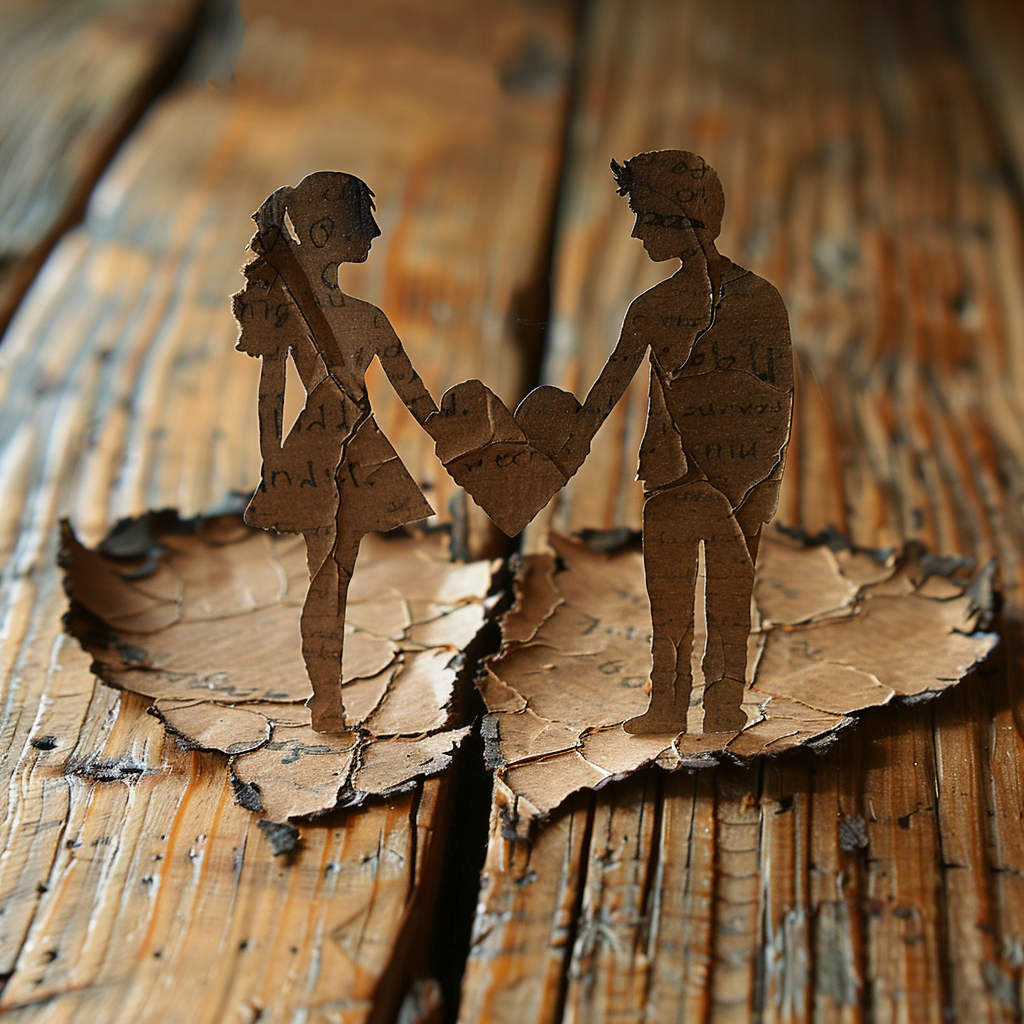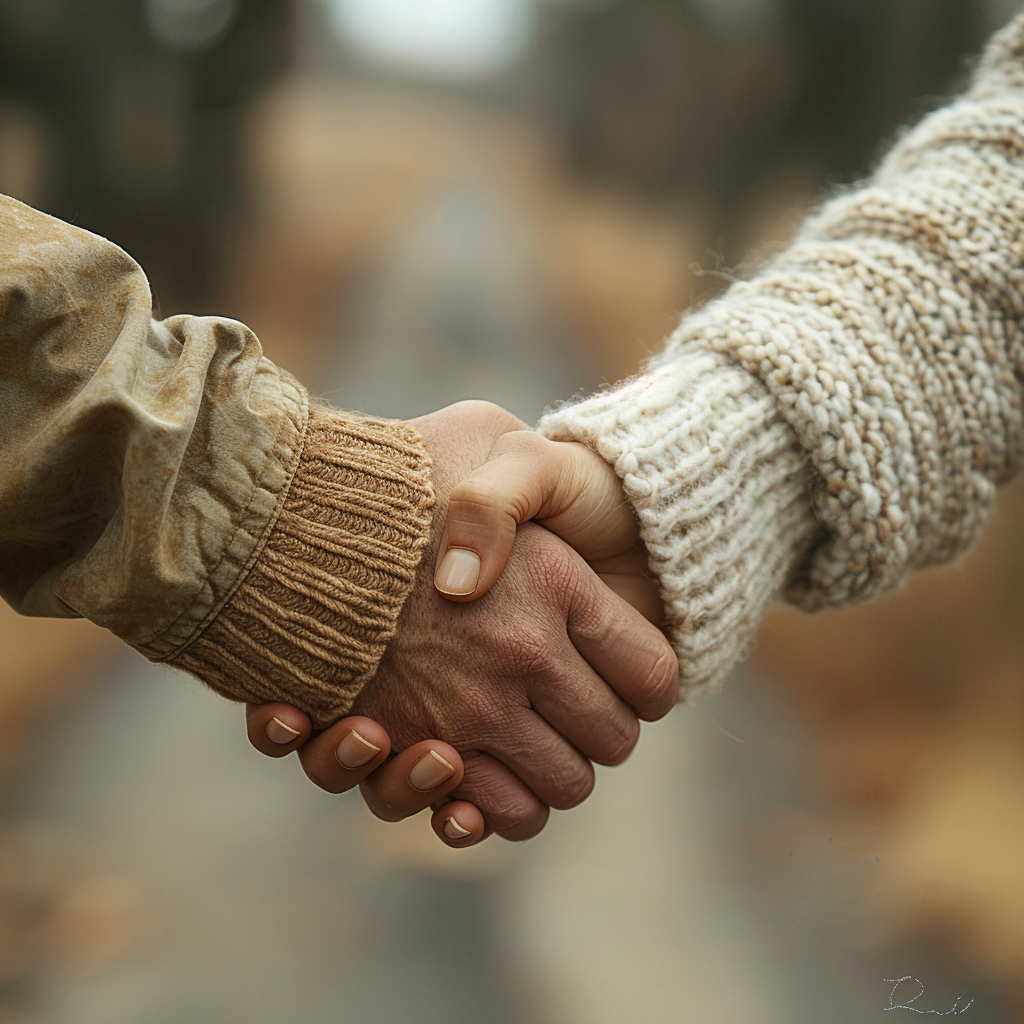How long do you date before becoming boyfriend/girlfriend? Well, it depends. On average, many couples tend to go on 5 to 10 dates over the course of 1 to 3 months before becoming official.
Key points
• Different Strokes for Different Folks: How long you should date before being in a committed relationship varies a lot. It depends on what makes each person comfortable, their cultural background, and what they expect. Some couples might decide to make it official after a few weeks, while others might take months or even more time.
• Talk About It: Good communication is key. Both people in the dating relationship need to be open about their feelings and what they want. Ideally, the talk about being exclusive should happen whenever both feel ready for a bigger commitment and trust each other enough.
• No Rule Book: There’s no one-size-fits-all timeframe for when you should start calling each other boyfriend and girlfriend. What’s most important is that both of you are sure about taking the step into a committed relationship and not just following some sort of rule.
Contents
- 1 Key points
- 2 Understanding the Dating Landscape
- 3 The Importance of Pacing in Relationship Development
- 4 Understanding the Relationship Timeline
- 4.1 Defining the Relationship (DTR)
- 4.2 How Long To Date Before Becoming Exclusive
- 4.3 Expressing Intentions and Expectations
- 4.4 Signs of Mutual Desire for Advancement
- 4.5 The significance of time spent together
- 4.6 Quality versus quantity of interactions
- 4.7 Milestones and their impact on relationship status
- 4.8 Societal Norms and Their Impact
- 4.9 Age, Geography, and Community Context
- 5 Personal Readiness for a Relationship
- 6 Evaluating Compatibility and Long-Term Potential
- 7 Understanding Confusion and Mixed Messages
- 8 Dealing with Fear and Self-Doubt
- 9 How Previous Experiences Influence Today’s Choices
- 10 Frequently Asked Questions (FAQ)
Jumping into dating can sometimes feel like you’re entering unknown territory. If you’re new to this or getting back into it, understanding how things work is essential. Knowing the ins and outs helps move from just casually dating to being in a serious relationship. It isn’t only about meeting someone; it’s also about the process that leads from your first encounter to forming a strong bond.
Understanding the Dating Landscape

Dating is like getting to know the rules of a game. You need to understand the different kinds of relationships and what people look for in a partner. Knowing this helps you communicate better and have healthier relationships. As you do this, you must be aware and ready to adjust because dating involves different phases and people expect various things.
The Importance of Pacing in Relationship Development

For a relationship to grow, it’s crucial to find a pace that works for both partners. It’s important to check in with each other’s feelings and not rush the process of getting closer. If things move at a comfortable speed, nobody feels swamped, and it helps make the relationship stronger. Taking your time can lead to a more stable future and helps you both build a deep connection as time goes on.
Understanding the Relationship Timeline

Starting a new romantic relationship can be thrilling and complicated. One key point in this process is when you go from casual dating to being a committed couple. This change usually follows important steps that show the couple is getting more serious and dedicated to each other.
Defining the Relationship (DTR)
Often called “The Talk,” defining the relationship is an important conversation where both people share what they want from their future together. It’s not just about giving the relationship a title, but about knowing what each person wants and if they have similar goals. Being clear about this can avoid confusion and make sure both know where they’re heading.
How Long To Date Before Becoming Exclusive
5 to 10 dates over the course of 1 to 3 months
When a couple decides to be exclusive, they promise to only date each other, stopping any other romantic flings. This shows they trust each other more and want to focus on growing their connection without outside involvement.
Expressing Intentions and Expectations
It’s crucial for partners to talk honestly about what they want from their relationship. Discussing hopes, values, and expectations can help them understand if they’re a good match and if the relationship could last. They should also talk about boundaries, deal-breakers, and individual needs so everyone understands the rules.
Signs of Mutual Desire for Advancement
If both partners are excited to progress their relationship, you’ll see signs like them spending more time together, introducing each other to family and friends, and planning for the future. These actions show they’re ready to blend their lives and think about what’s next together. But these signs must come from both to confirm that both want to move forward.
The way a relationship grows from casual dates to being monogamous is personal for every couple. Being in a relationship means having brave talks, sharing true feelings, and seeing each other’s actions reinforce trust in their future.
Time plays an important role in how romantic relationships grow. It’s not just about how long people have been together, but how they spend that time and what it means for them that builds a stronger commitment.
The significance of time spent together
Couples that spend lots of time together can get to know each other better. The moments they share build trust and closeness. But it’s important to remember that just being together for a long time doesn’t mean their connection is strong. What really matters is the quality of those moments.
Quality versus quantity of interactions
The amount of time couples spend together is important, but it’s even more important how well they spend that time. Doing meaningful things together, having deep talks, and supporting each other emotionally makes their bond stronger. Frequent shallow interactions don’t have the same effect.
Milestones and their impact on relationship status
Events like anniversaries or deciding to live together often show how far a relationship has come. These moments let partners think back on their time together and feel like they’re moving towards a deeper commitment. They aren’t just marking time, but showing growth and a mutual plan for the future.
The journey of love, from the first butterflies to the solid commitment of a long-term bond, is influenced by many cultural and social factors. These aspects dictate not only how we court but also how long we date before deciding to become committed partners.
Societal Norms and Their Impact
Society’s expectations can heavily influence the average length of dating phases. In some places, quick moves towards commitment are normal because of traditional views on marriage and family. But in societies that value individualism, couples often take longer to explore their fit and life goals before making a commitment.
Age, Geography, and Community Context
A person’s age can also affect how quickly relationships become serious. Often, older folks may date with purpose, ready to settle down faster, while young people might feel less rush and place importance on other life experiences first. Where you live plays a part too; cities usually have longer dating phases because there are more options and diverse societal norms than in rural places where traditions might speed up commitments. The nature of one’s local community is key; close communities can make bonds form faster since shared friends provide trust that encourages exclusivity sooner.
The complex mix of societal rules, age differences, where we live, and local community traits are all factors that shape how relationships start and how fast they turn into something serious.
Personal Readiness for a Relationship

Before moving from casual dating to a serious relationship, it’s essential to know if you’re really ready for it. This means looking inward to see if you’re emotionally stable and have enough self-confidence. You need to be sure that you can add something good to the relationship and balance your own needs with your partner’s. You’re likely ready if you’re okay with being single, know what you want in life, and can handle your emotions well.
Evaluating Compatibility and Long-Term Potential

To figure out if two people are right for each other, you gotta look deeper than just what’s on the surface. Checking if they share the same values, life plans, and respect for each other is important. It matters how they resolve fights, back each other up when things get tough, and cheer each other on. While how they communicate, interests they share, and physical attraction counts, agreeing on the big stuff is what really means they’ve got a strong starting point for a serious relationship.
Potential for Long-Term Partnership
When it comes to seeing if a romance can last, you’ve got to think about whether it’s built to last through life’s changes. You have to see how good the couple is at overcoming obstacles together, making choices that involve both of them, and putting effort into staying together as time goes by. Trust, being able to count on each other, and being willing to meet half way are super important for keeping things going for years. Keeping an eye on these things can help you guess if the relationship will stand the test of time.
Moving from just dating to actually being in something serious can be a bit dodgy sometimes. It’s key to spot when things between you and your date start getting more real. That moment usually comes with stronger feelings, spending more time together, and beginning to plan a future as pair.
Recognizing the Shift in Dynamics
As your relationship moves forward, you’ll probably notice things feel different when you’re together. Conversations go deeper than before and you share more about your personal lives. There’s a greater sense of ease as you start to meet each other’s family and friends, showing that things are getting pretty serious.
The Importance of Mutual Agreement and Understanding
One big step in going from casually dating to a solid relationship is making sure you both agree on what’s happening. Having honest chats is super important to make sure you’re both clear about what you expect and how you feel. If you’re not on the same wavelength, one person might get the wrong idea about how committed the other one is
Setting the Foundation for a Boyfriend-Girlfriend Relationship
Once you realize you both want more, it’s time to lay down some groundwork. You need to sort out what’s okay and what isn’t, get how the other one thinks, and figure out what you want out of being together. Making things official as boyfriend and girlfriend lays down the commitment you’ve got toward one another, and that sets you guys up for a stronger bond as time goes on.
Understanding Confusion and Mixed Messages

When you start dating, it’s common to face uncertainty and get confusing signals from someone you like. Figuring out what those unclear signs mean, and where you stand in a relationship can be stressful. People often express themselves in unique ways; their words and what they do might not match up with what they’re really feeling or planning. It’s really important for both people to talk openly and clear things up about how they feel and what they expect.
Dealing with Fear and Self-Doubt

When you’re starting a new relationship, dealing with your own fear and self-doubt can be tough. These feelings usually come from not feeling good enough, or from bad experiences in past relationships. This can make you question your value or be afraid of getting close to someone. To move past these feelings, it’s key to build self-confidence and learn to trust another person. It really helps to open up and talk about the things that scare you. This way, you can connect with your partner on a deeper level and lay the groundwork for a strong relationship going forward.
How Previous Experiences Influence Today’s Choices

Old relationships can deeply affect the way you make choices in love now. Good or bad, they mold what you expect, how you act, and your commitment level. For example, if you’ve mostly been with partners who weren’t reliable, you might be extra careful with trust.
On the other side, if you were in supportive relationships before, you might expect a lot from how a partner treats you. To move ahead well, one should recognize these past influences but also work to let each new connection develop on its own. It shouldn’t be stifled by old memories.
Frequently Asked Questions (FAQ)
What's a reasonable timeframe to consider making a dating situation official?
There isn’t a universally agreed upon timeframe, but it’s essential for both partners to feel ready and have a shared understanding of their relationship. Conversations facilitated by individuals like therapist Babita Spinelli or Amanda Jean Rocchio, specializing in relationships, can help guide partners in syncing their timelines. Recognizing milestones achieved together and assessing mutual feelings are critical aspects. Each step towards official status, from the first dinner date to meeting each other’s family, adds layers to their connection.
Is there a point when exclusivity should be expected when dating someone?
Exclusivity isn’t an assumption; it’s a mutual decision. Sarah Regan from mindbodygreen suggests that clarity through conversation is vital. The partnership progresses naturally, and the exclusivity talk may happen when both people feel strongly about taking the next step. An article on Lesbian Dating Advice might highlight patience, emphasizing that neither person should feel pressured by the other.
Does the 'three-date rule' hold any meaningful weight in defining exclusivity?
The so-called ‘three-date rule’ is a cultural reference rather than an absolute directive. Each couple may find this pace too hasty or too slow depending on their comfort levels and dating dynamics. Therapist Babita Spinelli points out that what matters is the authenticity of the connection rather than following societal expectations.
What are the indicators that it's time to define the relationship (DTR)?
Indicators include consistent and open communication, comfort in sharing vulnerabilities, and excitement about future plans as a couple. If both individuals feel butterflies in their stomach at the thought of exclusivity, it’s likely time for the DTR talk. Yoga instructor Amanda Jean Rocchio might liken it to achieving balance—when the excitement of new romance aligns with deeper feelings of trust and respect.
Can you measure relationship readiness based on the number of dates?
The number of dates alone doesn’t measure readiness; qualitative factors play a more significant role. Partners need to discuss their boundaries, intentions, and expectations candidly. According to M.S., articles on internet platforms like mindbodygreen clarify that building confidence through shared experiences is fundamental before labeling the relationship.
How do varying paces affect when two people decide to become official?
Individual pacing reflects personal values and attachment styles, ranging from cautious to impulsive decisions about partnerships. As an illustration, someone who treasures slow development may require more time than another who equates intensity with romance. Respecting each other’s pace fosters harmony and lessens confusion, as detailed in an insightful conversation with a relationship coach.
Is waiting until a set number of months pass advisable before becoming exclusive?
Advisories on dating timelines often suggest waiting for one to three months as a rule of thumb; however, real-life circumstances may sway this. People like Family Therapist Amanda Jean Rocchio would argue that what matters is the deepened understanding between partners over an arbitrary timeframe dictated by cliches.
When should a straightforward declaration of commitment take place in dating?
A declaration of commitment is best made when both parties have had ample opportunity to assess their feelings and future potential. Guided by therapists, couples might identify milestones that matter to them, experiencing an organic buildup rather than adhering to contrived timelines, leading to more genuine commitments.
Are friends’ opinions on when to make a relationship official relevant?
Friends can offer valuable third-party insights, but ultimately, the decision rests with the individuals involved. Articles like Babita Spinelli’s underline respecting personal circumstances and intuition rather than relying exclusively on external advice or societal benchmarks for romance.
How does one broach the topic of becoming official without causing unnecessary angst?
Approaching the topic requires sensitivity and timing; starting with open-ended questions within a relaxed environment could ease potential tension. Some professionals, such as Sarah Regan from mindbodygreen, stress the importance of ensuring accessibility features—like clear, open lines of communication—are established prior to tackling big discussions on relationship status.

I’m Kary Walters, a wedding planner, life coach, and writer with a passion for helping couples stay together and achieve their relationship goals. With over a decade of experience, I specialize in self-improvement and have worked with individuals & couples facing challenges.